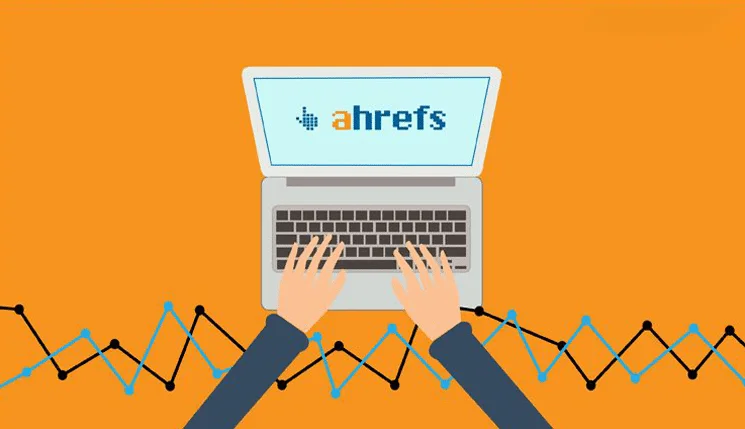
Search Engine Optimization is one of the most powerful tactics to rank your website in the top pages of SERP in digital marketing. It allows you to reach to the new users or to get better rankings and online visibility. For these reasons SEO has become the most important part to grow businesses, raise brand value of the companies and organizations. For this, various tools are available to get the healthy position in the search engine result pages. These tools help to improve the website’s ranking and help to get better with the online marketing strategies. Therefore, in this blog we will derive which are the top 10 SEO tools for the 2025. The tools (free and paid) are divided into the following categories.
1. SEO Tools
2. Keyword Research Tools
3. On-page SEO Tools
4. Link Building Tools
5. Technical SEO Tools
What is the purpose of SEO Tools?
SEO Tool offers the essential information to develop a successful SEO strategy. As well as, it offers site’s weaknesses and areas of development. This together improves the site’s health in the search engine ranking pages and hence site gets more exposure which helps to get leads and generate sales through the website. These tools support to get more into the user experience which is the basic guideline of the Google for better performance in the SERP.
These 10 SEO tools can help to optimize your organic positioning strategy and get relevant data.
1. SEO Audit Tools –
SEO Tools are the tools which provides complete evaluation of the condition of the website. As a result, the produce a complete report of the keyword research, technical aspects, backlinks, competition levels and SERP Performance. Let’s take a look at the most important all-in-one SEO tools suite.
-
-
Ahrefs –
-
Ahrefs is the most powerful SEO Tool because of its many features for website analysis. This tool also provides educational resources and online network support. This platform is distinguished by its user-friendly layout which includes modules are images that are simple to understand. This makes the perfect tool for SEO Experts, content marketing specialists, agencies and bloggers.

The tools which Ahrefs provides are –
– Site Explorer – To examine a website’s or URL’s link profile and organic traffic.
– Keyword Finder – A tool for researching keywords, evaluating their SEO challenges and estimating their prospective traffic.
– Content Explorer – To find and examine the most liked and well performing content in the certain area.
– Rank tracker – Perfect for tracking websites ranking and evaluating how well it performs wrt competitors.
– Site Auditing – This helps to find the errors in the website with its functionality such as HTML Tags, content, links etc.
-
-
SEMrush –
-
SEMrush is the most widely used all-in-one SEO Tool by the SEO Expert for the SEO optimization in keyword research and competitor analysis. It allows you to check competitors keyword placements, paid ad campaigns and the most appropriate keyword for the website. SEMrush offers the ability to build projects and examine various websites and domains. It also includes a dedicated area for conducting complete SEO audits. Examining elements including URLs, metadata, content, backlinks, security, and redirects is possible in this tool. As a result, it finds the website’s most important mistakes, issues warnings, and recommends fixes.
2. Keyword research tools
-
-
Google Keyword Planner –
-
This is the free keyword finder tool for the Google ad campaigns. It provides keyword suggestions for google ads as well as SEO with their search volume. The data provided by the Keyword Planner is also highly useful for focusing on SEO strategies thanks to its ability to obtain keyword ideas based on referring keywords, websites, or specific URLs. Additionally, it is possible to search on location based and the date-
based searches in this tool. Nevertheless, this tool has some restrictions when it comes to data regarding keyword search traffic. If you don’t have an active campaign in Google Ads, you won’t be able to see the exact volume of the keywords, but a range.
-
-
Keywordfinder.io
-
This tool is the most powerful keyword research tool as it provides 100s of possibilities of the keyword based on the certain topic and content. It also enables research to be conducted across several search engines and gives information on the queries that people ask in connection with that keyword. This is all free. Nevertheless, there is a premium version of Keyword Tool that provides access to information on search volume, trends, cost per click, and competition level. The basic plan in this version costs $69 per month, the plus plan costs $79 per month, and the business plan costs $159 per month.
3.On page SEO Tools
On page SEO Action includes Creating meta tags, sitemaps, crawl files, and modifying programming code. This is to meet search engine quality standards and enhance the website’s performance in the SERPs. Some of the primary on-page SEO tools in this regard are:
-
-
Yoast SEO
-
Yoast SEO is available for WordPress-built websites. This plugin, which comes in both free and premium versions, is used to optimize, examine, and enhance a website’s content. It allows for the integration of WooCommerce, videos, news, and local SEO plugins. Some of its key characteristics are:
-
- Keyword and synonym optimization
-
- High-performing keyword discovery using SEMrush
-
- Multi-keyword optimization
-
- Internal Linking Suggestions
-
- Preview the website in search results
-
- Preview website in social media shares
-
- Verifying the readability of content in posts and pages
-
- Structured Data Blocks
-
- Control and configuration of breadcrumbs
-
- Configuring Sitemaps
-
- Configuring canonical URLs
-
- SEOQuake
The free toolbar SEOQuake works with Firefox, Opera, and Google Chrome. This tool allows you to do an SEO audit and get internal website information about HTML headings, ALT attributes, URLs, title tags, and meta descriptions. It also checks for the presence of Robots.txt files, XML sitemaps, and language coding, among other things, and assesses how well the website works on mobile devices.
In addition to being an on-page SEO tool, this tool is really helpful for real-time domain and URL comparison and for examining internal and external links. It also provides information on websites rated by relevant Google search terms.
4. Link Building Tools
A key component of SEO is the analysis and development of backlinks. As a result, you can learn about the domain authority and link quality of both your own website and your competitors. This will enable you to more strategically plan your link-building tactics. Top two for link-building SEO tools are as follows:
-
-
Majestic SEO
-
Majestic SEO is an ideal tool backlink analysis and link-building strategy optimization. It provides an information about the citation flow and the trust flow, additionally it provides the websites to link to and detects untrustworthy and negative links.
Site Explorer: It gives a precise information on inbound and outbound links and enables to thoroughly examine any site or URL.
Bulk backlink checker: A unique tool for determining a website’s inbound link count. Therefore, it examines the number of websites that point to the website and determines which of them are higher authority or referring domains.
New index: This is where you can see the links that Majestic has found during the past ninety days.
Search Explorer: It uses its own link crawl data to generate a keyword index. Examine anchor text, domain names, and URLs to accomplish this.
-
-
Cognitive SEO
-
A paid tool for link audits and backlink analysis is called Cognitive SEO. Among its responsibilities include monitoring incoming connections to a website in real time and assessing competitors’ link-building strategies. It also allows to identify the causes that can lead a site to be penalized, so it helps prevent penalties for unnatural links. Cognitive SEO is one of the SEO tools for creating links, but it also examines a website’s technical aspects and permits audits.
5. Technical SEO Tools
Technical SEO tools go hand in hand with on-page SEO tools. These enable to fix bugs and confirm that the website is operating properly. All of this is done to ensure that a website satisfies the standards and quality aspects that search engines require in order to display it in their index.
Google Search Console (previously known as Webmaster) is the most used and free to use tool with an organic search result. By linking the website to a Google Search Console let us determine the website’s speed technically i.e. in the technical aspects such as URL crawling status, indexing status, issues with non-indexed pages and performance issues. Its main characteristics are:
-
- Check a website’s indexing status
-
- Resolve Crawl Errors
-
- Request indexing of new or updated content
-
- View site traffic data in Google search
-
- Troubleshoot mobile usability and search features
-
- Submit sitemaps to tell Google
-
- Analyze the robots.txt file
-
- Finding Structured Data Issues
-
- Screaming Frog
A downloadable software called Screaming Frog functions as a crawler to raise a website’s search engine optimization. This is done by analyzing and extracting data related to each part on the website. In light of this, it performs an audit that consists of the following:
-
- Analysis of all site titles and meta descriptions
-
- H1-H6 Headers Review
-
- Discovery of duplicate and low-quality content
-
- Broken Link Detection
-
- Evaluation of internal linking and URL architecture
-
- Sitemap.xml file based on crawl results
-
- robots.txt Review
Without a doubt, the success and efficacy of the organic positioning process depend heavily on the use of SEO tools. They are useful not only for measuring and extracting important information about a website, but also for analyzing the data and suggesting steps for improvement based on the findings. Now that you are aware of what SEO tools are, review them and choose which ones will go into your strategy.

